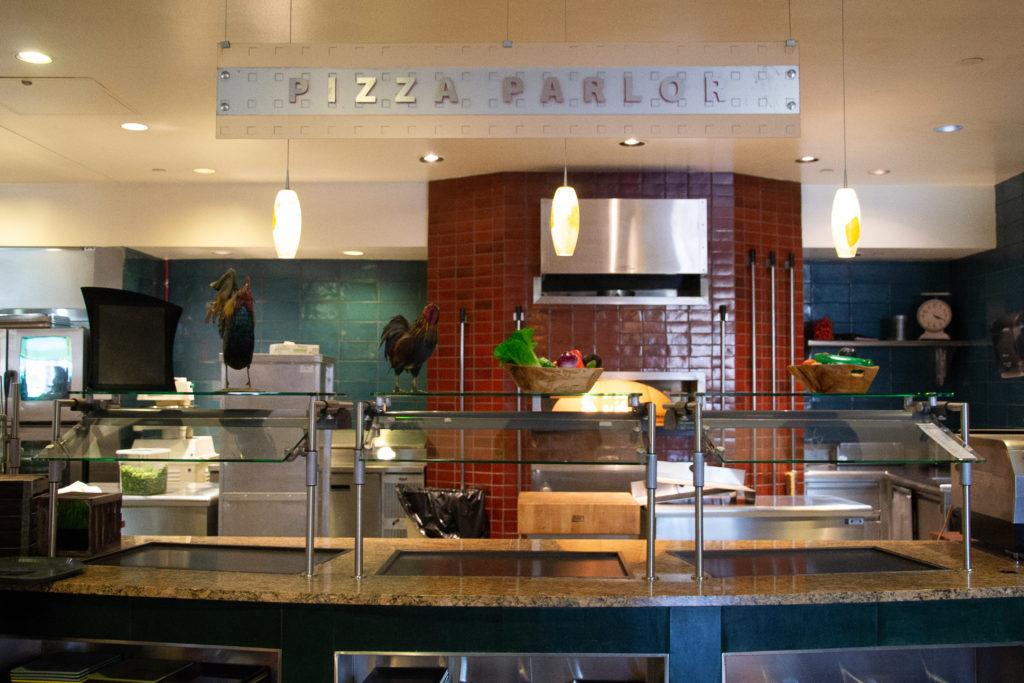
According to Jeanette Moser, director of dining services, three full-time positions are currently open in the dining hall. While the shortage of student workers in Dining Services has long troubled the department’s operations, the current lack of full-time employees is a relatively new phenomenon.
Kelly Edgington, who worked in dining services from January of 2000 until early this spring, reflected on her work at the College and the challenges posed by the scarcity of employees.
“I enjoyed my time at Grinnell, I learned a lot while I was there,” Edgington said. “What’s been good at my job is the students. That’s probably what kept me there as long as it did, but in the same retrospect that’s what also pushed me away. … You always have … students that need to work and need to make money, and then you have other students that basically are working for party money,” she said.
Edgington also pointed out the lack of career staffers and described her attempts to juggle the tasks of coordinating schedules, managing student employees and serving food.
“You have to take care of the office work along with doing your job. Honestly there was never enough hours in the day to make that happen. Career staff side, I’d really like to see another supervisor there,” she said.
Julie Williams, a presentation cook at the dining hall, also discussed the challenges posed by the shortage.
“We need at least two more full time employees to be fully staffed. So therefore people are working longer days, fewer days off, the inability to take vacation time because we’re just not covered. When the students don’t show up — students make or break us. Because we need an extra pair of hands to help. When you prepare food for 1,000 people, it’s really hard to do without extra hands,” she said.
For Edgington, the pressure of the job began to affect her health.
“The last several years, the stress did start wearing on me. The mental and physical aspect of the job, it affected my sleep. I honestly can say — I’ve been off two and a half weeks from there and didn’t have to go back — I’m actually sleeping at night now. Towards the end I had to force myself to go into work, some mornings I would wake up anxiety-ridden that I didn’t even want to walk in the place,” Edgington added.
To address the student staffing shortage, the Union of Grinnell Student Dining Workers (UGSDW) has pushed for higher wages since its creation in 2016. Full time employees, who are not represented by the union, do not enjoy such a platform for bargaining with the College. And while many dining services staff members praised the benefits of the job — such as health insurance and free tuition for children attending the College — they argued that the hourly wages did not suffice to cover personal expenses, in part due to summer vacations that leave otherwise full-time employees without work for much of the year.
Put simply, said Mike Fiebelkorn, who worked for dining services until this October, “it was a good paying job that didn’t pay very well.”
“Through four years, I had my own electrical business and I made more in the three months during the summer I was off than during the seven and a half months I’d work at the College combined. When you’re full time and you spend seven and half months getting paid and then are off for like three months … it’s not easy,” he added.
Another staff member, who spoke on the condition of anonymity, noted that in addition to their full-time jobs at dining services, many employees with families felt the need to take on second jobs.
Edgington agreed, and said that the issue was one that she had emphasized in her exit interview with the College.
“I told them I thought that I wasn’t being paid enough. … It took me a long time to work there to build up enough vacation time to cover the voids when I was off from work, that I would actually get paid. People just starting out, they honestly need, would literally have to get a part-time job for just over the breaks, and that’s hard to do,” she said.
Some schools, such as the Grinnell-Newberg School District, mitigate the effect of summer breaks by “prorating” employee pay, a practice in which a portion of an individual’s pay is withheld from a given paycheck and distributed during the employee’s time off.
Mary Greiner, assistant vice president of human resources, acknowledged that the issue of prorated pay had been raised in the past, but stated in an email to The S&B that, “The Department of Labor and corresponding wage and hour laws would not allow us to pay our hourly staff in this manner. Time worked must be paid in the pay period following the time the work is performed — so spacing out pay for work done in earlier months is prohibited.” To stretch payment across the summer months, the College would need to provide workers with salaried, rather than hourly, work positions.
As for wages, Greiner says, the school has partnered with Willis Towers Watson, a national consulting firm, “to determine appropriate pay ranges and benchmarks for our faculty and staff positions.” And although the College could not provide specific information regarding contracted wages for employees, the issue will remain a contentious one as labor shortages persist.

























































